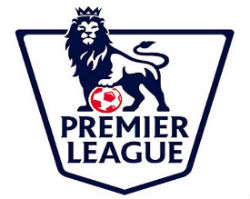 Top tier football broadcast licensing in the UK is handled by the Premier League but like all content owners, it faces a threat from unauthorized providers.
Top tier football broadcast licensing in the UK is handled by the Premier League but like all content owners, it faces a threat from unauthorized providers.
Instead of paying significant monthly subscriptions to broadcasters such as Sky and BT Sport, large numbers of fans are turning to piracy-enabled set-top boxes for their fix. While not as sleek as their official counterparts, they can provide a cheap alternative for those on a budget.
Often Kodi-powered, these devices are augmented with third-party addons that facilitate access to streams freely available online or the more select offerings of organized IPTV providers. They also allow fans to access games during the 3pm ‘blackout’ period when no official broadcaster is allowed to transmit live football.
In an effort to reduce this threat, March last year the Premier League obtained a blocking injunction from the High Court which compelled ISPs including BT, Sky, TalkTalk and Virgin Media to block unauthorized streams in real-time.
Granted under Section 97a of the Copyright, Designs and Patents Act, the order gave the Premier League the ability to “target the suppliers of illegal streams to IPTV boxes, and the internet, in a proportionate and precise manner.”
Figures subsequently released by the football organization revealed that under the injunction it was able to block 5,000 server IP addresses that were streaming its content illegally. That success encouraged the league to apply for a fresh injunction for the 2017-18 season.
A second order was handed down by the High Court in July 2017 and quickly began producing results for the Premier League.
It ran from August 12, 2017 to May 13, 2018 but contained a clause which gave the Premier League the right to apply for an extension for a further season. That application was made a little while ago and has now been granted by the High Court.
The extended order affects BT, EE, Plusnet, Sky, TalkTalk and Virgin Media, meaning that all customers of these ISPs attempting to watch live ‘pirate’ Premier League football via the Internet could be suddenly subjected to a block. There are no consequences for users caught up in the blocking efforts, other than to have their big game enjoyment curtailed.
The extended order, which was signed by Mr. Justice Arnold after being considered ‘on paper’, notes that the ISPs were split on whether to support or simply not oppose the order. No names are detailed but it’s likely that ISPs with a vested interest in airing live sports – notably BT, Sky and Virgin – were the ones in favor.
It’s important to note that no ISP objected to the application or was represented in Court. Nevertheless, Justice Arnold said that despite the lack of opposition, he still needed to be satisfied the proposed blocking would be proportionate before granting the order.
Citing evidence provided by the Premier League, the Judge said that the second order handed down in 2017 was “very effective in achieving the blocking of access to the Target Servers during Premier League matches” and that there was no evidence of over-blocking.
Many aspects of the second order granted last year were kept secret by the High Court and this year’s extension is no different. The only public details are that the order “enlarges the subset of infringing streaming servers to be blocked” and also modifies the way in which hosts are notified of infringement.
“[T]he requirement to notify hosting providers is made subject to a short delay. This is in order to prevent the order being circumvented. The evidence filed by FAPL in support of the application demonstrates that there have been attempts to circumvent the Second Order, and therefore this concern is a very real one,” Justice Arnold writes.
All things considered, the Judge appeared to have no problem granting the order, noting that his reasons for doing so remain largely unchanged from those relied upon when granting the original order in March 2017.





